69 posts
Latest Posts by reddammancy - Page 3
🍄🌻🍂 Outdoorsy Agere 🍂🌻🍄
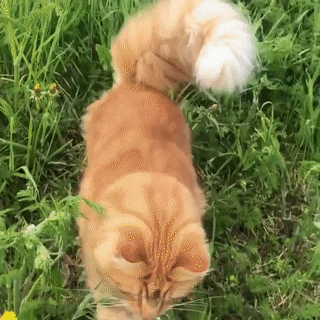
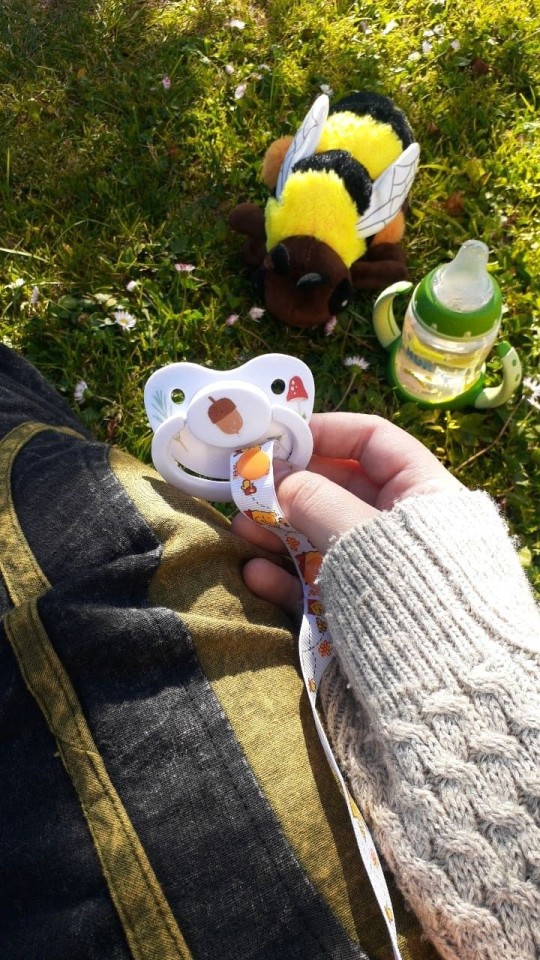
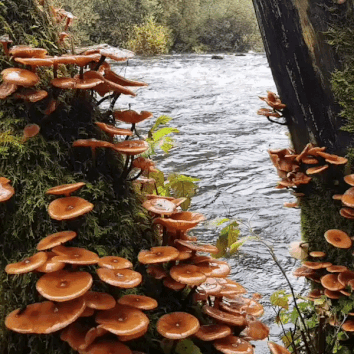
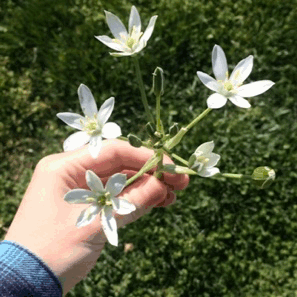
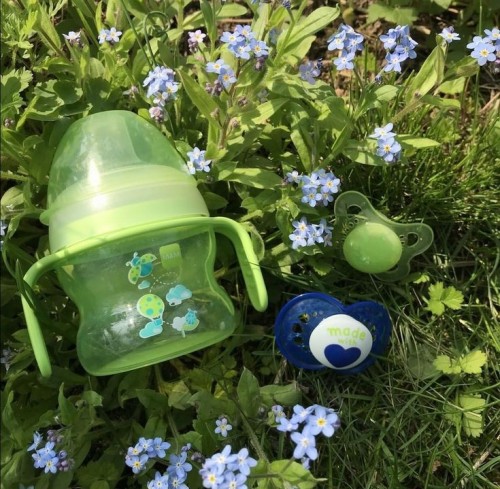
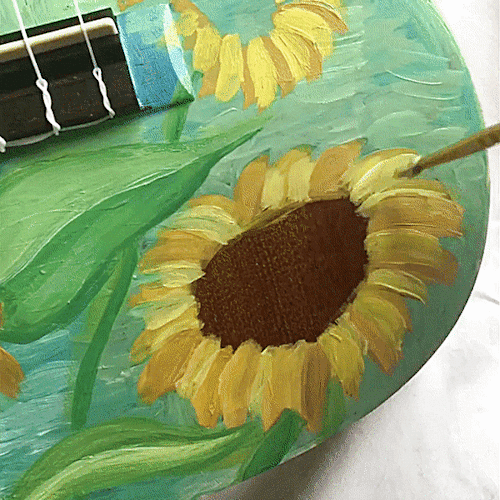
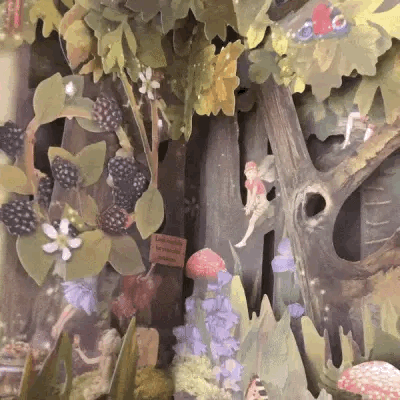
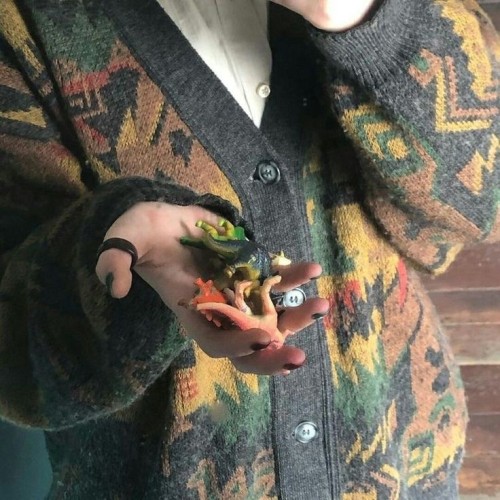
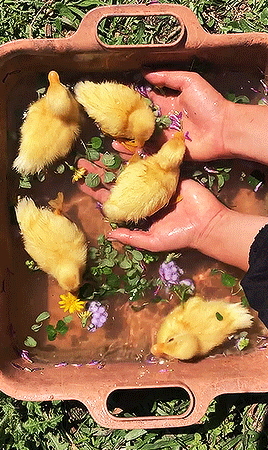















“Do you blame Shakespeare for any of it?” The question is so unlikely, so nonsensical coming from such a sensible man, that I can’t suppress a smile. “I blame him for all of it.” ― M.L. Rio, If We Were Villains (2017)
Forgive me, for all the things I did but mostly for the ones I did not. ― Donna Tartt, The Secret History (1992)
Ok tumblr friends. I’m trying to spend less time on the internet these days, and I LOVE reading non-fiction books, but trying to find recommendations for new books is a nightmare. Any time I try to look up good new non-fiction books the results are all like “would you like to read an autobiography of Paul Newman or New Reasons We’re All Doomed” and that just. Doesn’t Work for Me. So I’m asking for recs here. I’m open to books about literally any field or topic. Only caveats are that hard sciences have to be on a level I can understand as a humanities person, and medical stuff can’t be too gory (ie I loved Siddhartha Mukherjee’s The Gene and The Song of the Cell, but can’t stomach The Mother of all Maladies). And nothing TOO miserable, but I have a fairly high tolerance for historical stuff. I’m particularly fond of micro-history and books that delve into multiple overlapping topics.
As a sampling, here are some books I’ve read and particularly enjoyed in the last two years:
Prairie Fires: The American Dreams of Laura Ingalls Wilder by Caroline Fraser
The Cooking Gene by Michael Twitty
The Gene: An Intimate History by Siddhartha Mukherjee
Song of the Cell by Siddhartha Mukherjee
On Savage Shores: How Indigenous Americans Discovered Europe by Caroline Pennock
Fifth Sun: A New History of the Aztecs by Camilla Townsend
The Five: The Untold Lives of the Victims of Jack the Ripper by Hallie Rubenhold
The Last Days of the Incas by Kim McQuarrie
The Dream and the Nightmare: The Story of the Syrians who Boarded the Titanic by Leila Salloum Elias
Life on a Young Planet: The First Three Billion Yeats by Andrew Knoll
Salt: A World History by Mark Kurlansky
The Food of a Younger Land by Mark Kurlansky
Mastering the Art of Soviet Cooking by Anya von Bremzen
Jesus and John Wayne by Kristine Kobes du Mez
Kingdom of Characters: The Language Revolution that made China Modern by JIng Tsu
The Last Island: Discovery, Defiance, and the Most Elusive Tribe on Earth by Adam Goodheart
Entangled Life by Merlin Sheldrake
National Dish: Around the World in Search of Food, History, and the Meaning of Home by Anya von Bremzen
The Horse, the Wheel, and Language: How Bronze-Age Riders from the Eurasian Steppes Shaped the Modern World by David W. Anthony
The Wager: A Tale of Shipwreck, Mutiny, and Murder by David Grann
Fire away!
hi, do you have a pinterest?
here ✉️
Falling in Love!!

Hello, brain people!
Love!! What on earth happens to your brain as you fall in love? There are three stages that we all go through as we fall in love with that special somebody: Lust, Attraction, Attachment
During Lust, sex hormones are released - this being oestrogen and testosterone in women and men respectively.
Throughout Attraction, you feel all wonderful and love-stricken! You can’t think of anything other than that special somebody. There are three main neurotransmitters that are involved in this stage, with each type acting within a specific pathway in the brain. These neurotransmitters are: Adrenaline (Epinephrine), Dopamine, and Serotonin.
Epinephrine is released during your body’s “stress response”, making your blood levels of adrenaline and cortisol increase. This means that even meeting with that somebody can make your heart race, as you also start to sweat. How lovely!
Dopamine is closely related to our brain’s “appetite system”, the system that is active whilst we are craving something. Dopamine stimulates “desire and reward”, and does this by triggering a rush of pleasure! This has a very similar affect to cocaine on the brain! Love is a drug!
Serotonin is an anti-depressant, and may also explain why, when falling in love, your love stays on your mind.

Finally, we have attachment! This is the tight bond that keeps couples together long enough for them to raise children. Yet again, we have chemicals to thank for this! These are: oxytocin and vasopressin.
Oxytocin, the cuddle hormone :), is a very powerful hormone released by men and women during orgasm, and is said to deepen the feelings of attachment between the couple, making them feel much closer to each other. As the theory goes, the more sex that the couple has, the deeper the connection they feel for one another. Sounds good to me! :)
Vasopressin is an anti-diuretic hormone that works with your kidneys to control thirst. Although little is known about the affects of this hormone, when male prairie voles were given a drug that suppresses the effect of vasopressin, the bond with their partner fell apart immediately, as he then would fail to protect his partner.
So go out there! Bump into a complete stranger, tell them about yourself, and fall in love! :)







How To Build A Brain

Why does sleep deprivation worsen the appearance of eye bags?
Is the brain a computer?
A condition in which people have white pupils rather than black ones
Can magic mushrooms cure depression?
Why does drinking alcohol make us lose our memory?
Heres a cool trick you can do with your eyes! (smooth pursuit)
Babies born addicted to drugs
Don’t fall in love with the moment and think you’re in love with the girl
Nature is FAKE NEWS
We are wired to look out for eachother
How do anti depressants work?
Black hamlet fish are petty gender fluid egg traders
Why we need better mental health education
How does spiking a drink with Rohypnol work?
The difference between SSRIs, SNRIs and MAOIs (differing anti-depressants)
What is reading and writing like for people with dyslexia
Why is colour blindess more common in males than females?
Why do we dwell on negative experiences and dismiss positive ones?
Chess is as physiologically taxing as an EXTREME sport
Why do we romanticize the past?
Is there a difference between MRIs and fMRIs?
Why do we want to be loved?
Why do pineapples make our mouth itch?
How to construct and read skeletal formula (chemistry)
Why does fear make us jumpy?
Why do words start to sound weird when we repeat them too many times
Why don’t we have memories of our early childhood?
Why don’t dreams make sense?
What causes lactose intolerance?
What even are brainwaves?
The purpose of pain
Sociopaths
When fun things don’t feel enjoyable anymore :( (Ahedonia)
Do antidepressants change your personality?
Why do we like some smells and are disgusted by others?
Why do our hands turn blue when cold?
Is love real?
Why are we ticklish?
Why do we have feelings of insecurity?
Do plants have gender identities?
Why do we cry when we are sad AND happy?
There’s a condition where the sun makes you sneeze
Why do we lose our appetite when we’re nervous?
Why do we have ‘tells’ when we’re lying?
Why do we get ‘butterflies in our stomach’?
Why do we get brain freeze?
The purpose of laughter
Why do our brains seem to become more active before we sleep?
Why does sadness feel like physical pain?
Why does your heart go boom boom when u see someone hot?
Why do we have a tendency to share our secrets at sleepovers?
More like this on @tobeagenius, Youtube and Instagram!
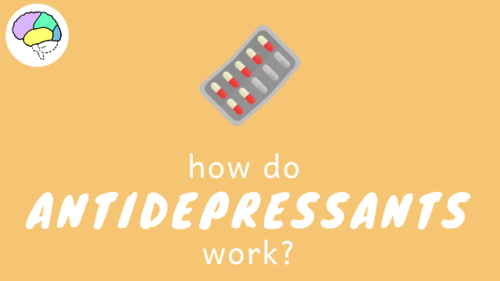

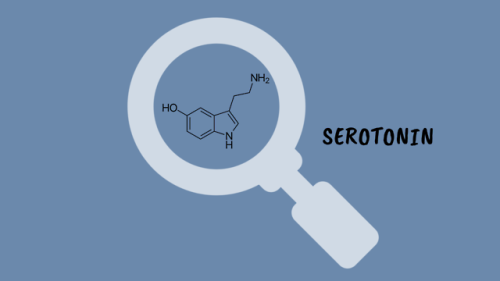
How Do Antidepressants Work? (Video)
Your brain is a network of billions of neurones, all somehow connected to each other. At this very second, millions of impulses are being transmitted through these connections carrying information about what you can see and hear, as well as your emotional state. It’s an incredibly complex system but sometimes things go wrong. Despite extensive research, we are still not certain on the biology that underlies mental illnesses- including depression. However, we have come pretty far in developing effective treatments.
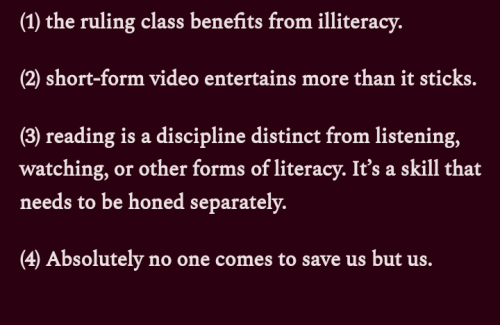
"Absolutely no one comes to save us but us."
Ismatu Gwendolyn, "you've been traumatized into hating reading (and it makes you easier to oppress)", from Threadings, on Substack [ID'd]
what's a book you read as a teenager that was so magical and personally profound to you it literally changed your life, doesnt matter if the book was actually well written or not. mine's probably the catcher in the rye
hanya yanagihara “he is so lonely that he sometimes feels it physically, a sodden clump of dirty laundry pressing against his chest. he cannot unlearn the feeling” vs heather christle “i sometimes imagine a metaphysical strainer i could rinse my body through, until i am whole and clean in the sink, and all the despair is held separate and dripping above. i imagine i could toss it away” vs chen chen “i wish i could peel / all my sadness in one long strip off my skin / & toss it in a bucket. no one would have to carry it. / it would just sit there & be punished. / it would just sit there & think about everything it’s done”
Francis Abernathy is such a fantastic character to me, because he’s not outwardly violent like Charles, nor increasingly cold and self-serving like Henry, yet he is just as shallow. I often see the sentiment that his ending is so tragic and how he was forced into that unhappy, het marriage. As he expresses in his suicide letter, Francis ultimately succumbs to his own lack of moral strength and failure to act (“Forgive me for the things I did but mostly the ones I did not.”) Obviously I will acknowledge that the marriage situation was unfair — no one deserves to be ousted from their family for their sexuality. However, it really was not his only choice. Just as Richard comes to realise (and is quite disgusted by), Francis would rather remain trapped than have to get a job, provide for himself, and make his own life. It reminds me a lot of Julian’s ending, and how Richard says he could at least respect it if Julian had turned them in, since it would show some strength of character, but his running away only exposed how weak-willed he was all along. Perhaps Francis has a better moral compass than Henry, but his failure to use it renders him just as at fault for everything that happened. As always, Francis values his comfort over his happiness. That’s his fatal flaw.

Francisco Goya - Boy Staring at an Apparition, (1824–25)
If you see this you’re legally obligated to reblog and tag with the book you’re currently reading